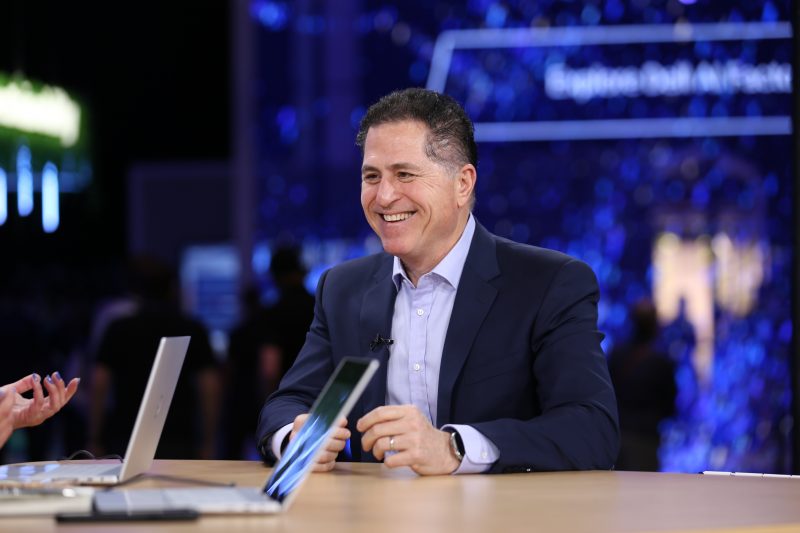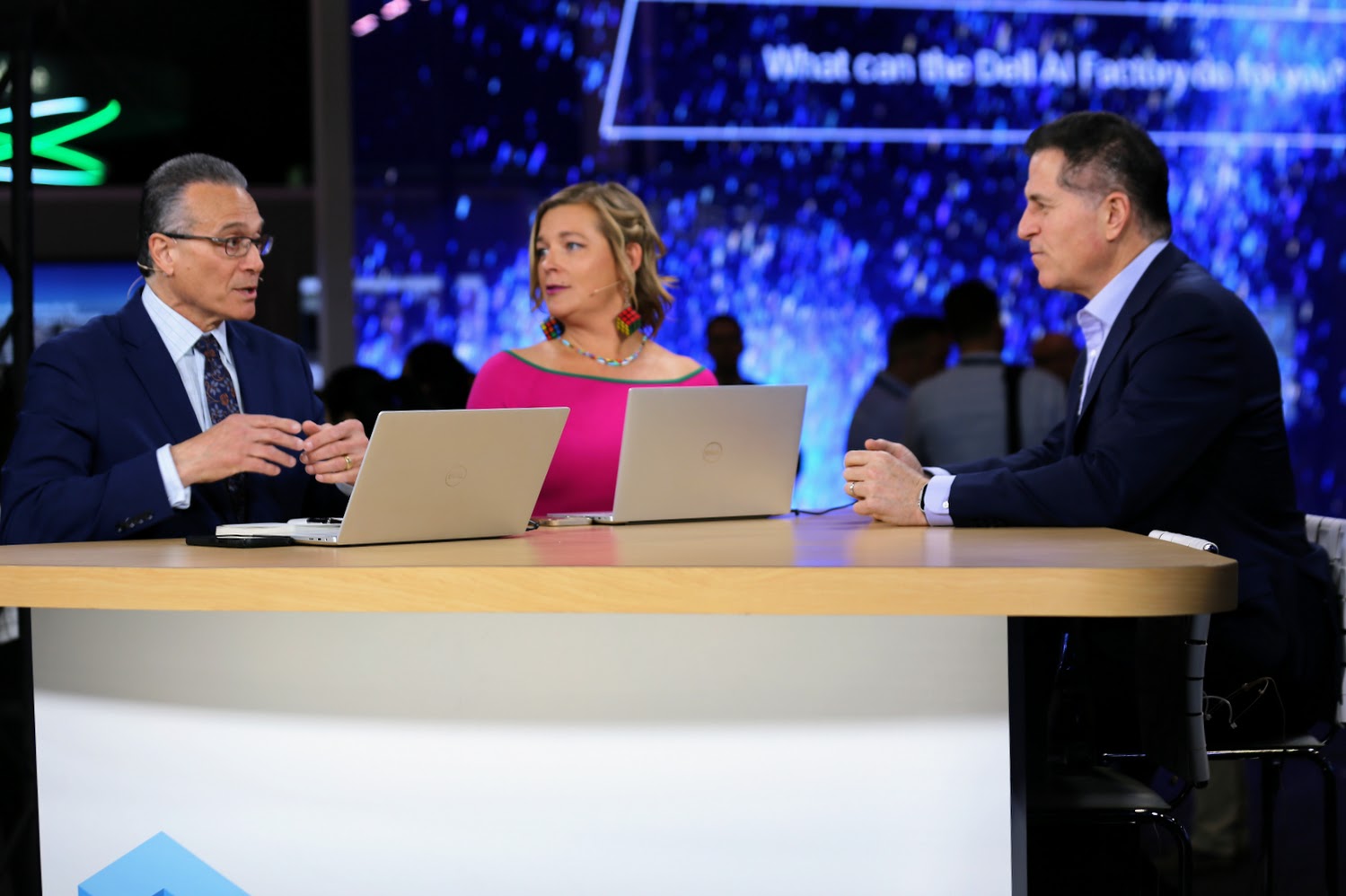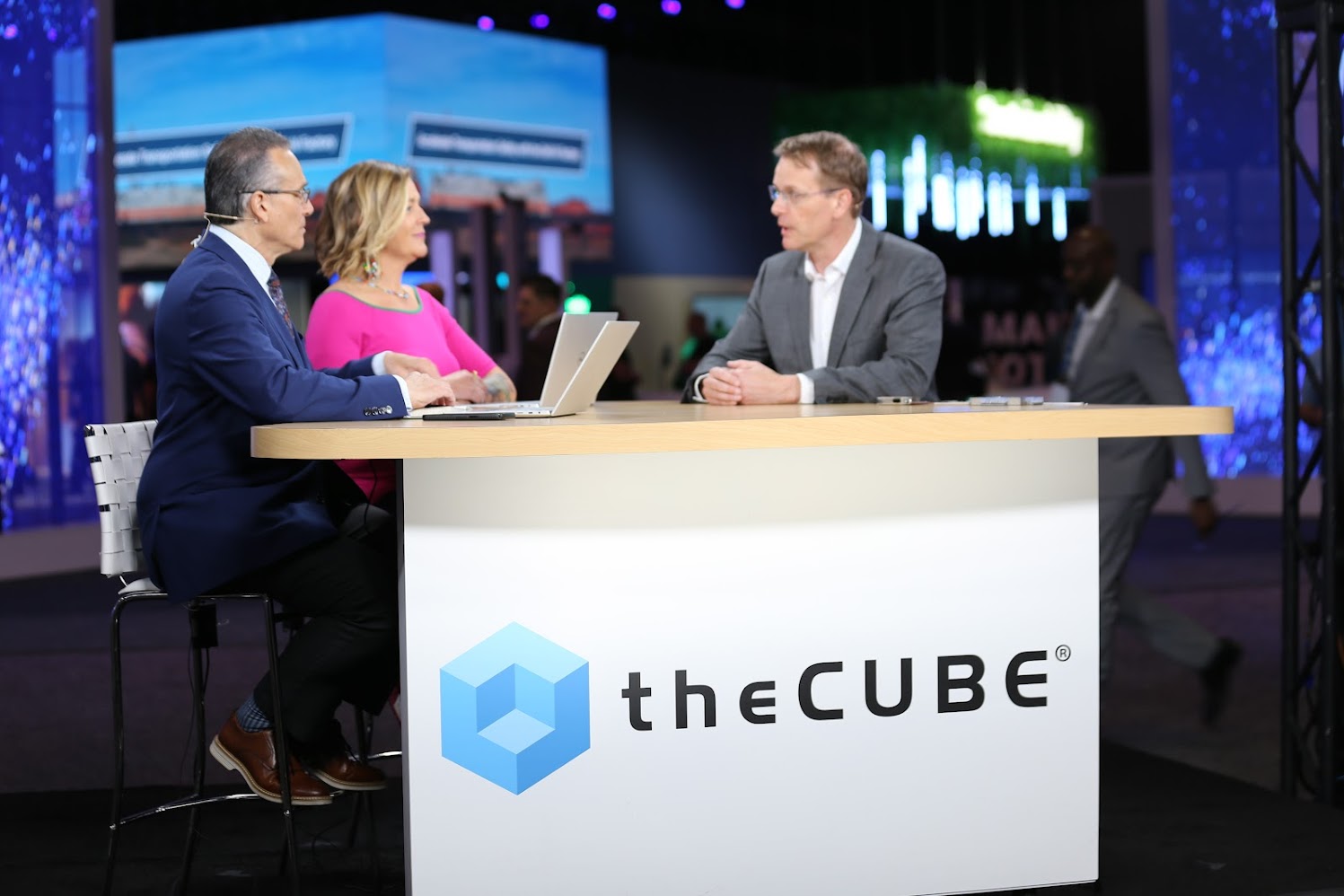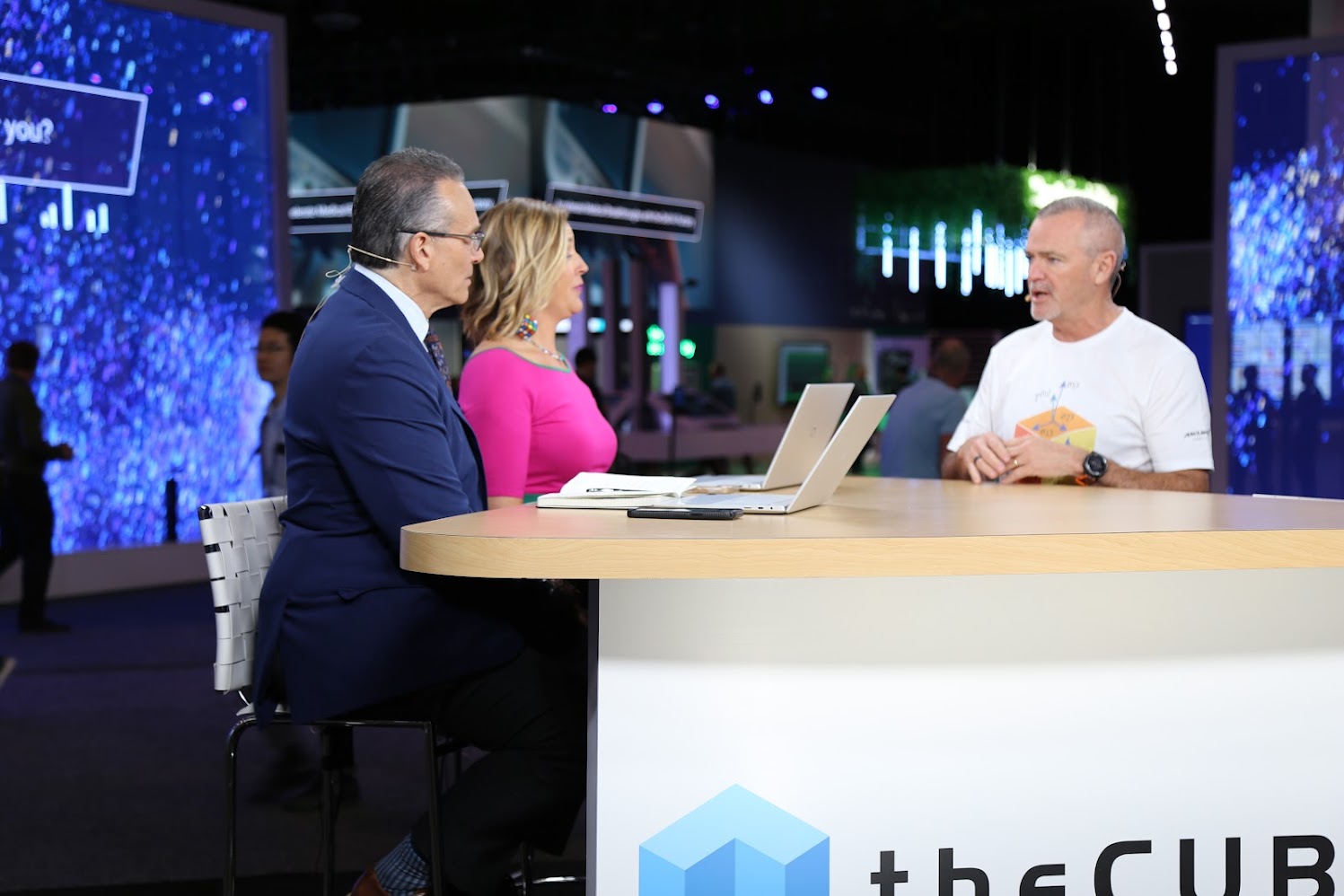 AI
AI
 AI
AI
 AI
AI
Dell Technologies Inc. devoted much of its annual conference in Las Vegas this month to defining its artificial intelligence strategy. Through announcements and various executive presentations, the company highlighted a set of networking and infrastructure solutions designed to capitalize on the technology tsunami that has become AI.
What that picture looks like now and how it could propel Dell forward was a central focus for theCUBE, SiliconANGLE Media’s livestreaming studio, as Dell executives, partners and industry analysts offered their insights into how AI is shaping the enterprise computing future during Dell Technologies World 2024.
“Dell wants to capture that upgrade cycle that’s coming with AI,” John Furrier, executive analyst at theCUBE Research, said during the conference. “You’ve got clustered systems at the servers, so servers are changing. The PCs are changing. The devices are changing. Everything in the network will be connected with some sort of AI system, and the hardware matters. Dell recognizes that.” (* Disclosure below.)
Here’s theCUBE’s complete analysis from John Furrier, who was joined by fellow analysts Savannah Peterson and Bob Laliberte:
Here are three key insights you might have missed during the event:
In less than two years, AI has transformed the hardware world. Dell’s most recent releases highlight this emerging trend. The hardware giant unveiled new flash storage systems tuned to AI workloads, network appliances for faster throughput and lower latency, and an expanded partnership with graphics processor supplier Nvidia Corp. for AI-based workstation products.

CEO Michael Dell talks with theCUBE about AI in the enterprise world.
“We started seeing a lot of new demand from customers as they were deploying these models, needing training systems,” said Michael Dell (pictured), chief executive officer of Dell Technologies, in an exclusive conversation with theCUBE. “They were saying, ‘OK, this is great, but I need way faster networking and way faster storage. And I want to connect thousands and tens of thousands and hundreds of thousands of these together.’ It feels like Dell Technologies was made for this moment.”
Watch theCUBE’s complete video interview with Michael Dell.
The company is also seeing a new wave of compute power on the horizon that could become a key factor in AI deployment. The rise of quantum computing offers a two-way street, according to John Roese, global chief technology officer of products and operations at Dell. The technology may soon have a major impact on model training and benefit from AI itself to solve some of the physics challenges that quantum presents.
“There’s a lot of people, including myself, that think one of the big breakthroughs on quantum in the early days might not necessarily be inferencing or low-level stuff. It might be that it just revolutionizes training,” said Roese, during an interview with theCUBE. “AI is really good at helping you build more effective higher performance control systems and things that can manage a magnetic field. So, some of the really hard physical problems in quantum will actually only be solvable by the application of AI and that’s happening.”
Here’s theCUBE’s complete video interview with John Roese:
AI is also driving a resurgence in private and hybrid cloud computing. Dell’s response to this could be seen in its move to speed deployment of AI services built on the Dell Apex platform, including those created in concert with Microsoft Azure.
“You bring AI to the data, and the data is in the data center,” said Caitlin Gordon, vice president of product management at Dell, during an appearance on theCUBE. “One of the philosophies for the Apex Cloud platform is really to simplify operations. We’ve felt in the past six months to 12 months, there’s almost a private and hybrid cloud resurgence in this conversation driven by AI and many other topics. What we’ve announced this week is really an additional support for our Apex Cloud platforms for Microsoft.”
Here’s theCUBE’s complete video interview with Caitlin Gordon, who was joined by Shannon Champion, vice president of product marketing at Dell:
The steps required to process large datasets that fuel AI workloads call for serious computing power. This reality has increased enterprise reliance on networking solutions that span multiple data centers across thousands of GPUs.

Broadcom’s Jas Tremblay talks with theCUBE during Dell Technologies World
Major processor suppliers, such as Broadcom Ltd., Intel Corp. and Nvidia, have emerged as central partners for Dell to satisfy infrastructure demand.
“There’s a lot of networking technology that you need to build this up,” said Jas Tremblay, general manager of the Data Center Solutions Group at Broadcom, in an interview with theCUBE. “Going from a compute server to an AI data center world, the complexity and scope of connectivity goes up exponentially. It starts with your AI server that has a dozen GPUs, a dozen NICs and dozens of NVMe drives. And you need to build an internal fabric for that, which is based on PCIe, and we participate there.”
Watch theCUBE’s complete video interview with Jas Tremblay.
To help manage AI workloads, Intel has developed its next generation of Xeon E-core processors, branded as “Sierra Forest,” to help users save time and money. These processors will be part of Dell’s latest hardware deployment for AI development work.
“Workloads today are bifurcating, where you need a lot of performance per thread and then sometimes you need power density, very efficient compute,” said Ryan Tabrah, vice president and general manager of Xeon E-Core products at Intel, in conversation with theCUBE. “The data center’s becoming kind of the bottleneck of being able to innovate in your business … [Xeon 6 is] the easy button for companies to be able to just move their infrastructure to the future gen.”
Here’s theCUBE’s complete video interview with Ryan Tabrah:
Storage technology will play a key role in the support of AI workloads, and Dell unveiled a substantial release for its PowerStore lineup with its PowerStore Prime. As networking evolves to accommodate AI, the company has been focused on network integration with compute and storage, key elements in Dell’s chipmaker partnerships.
“What we bet on is that networking needs to be integrated with compute and storage and be very high throughput,” said Ihab Tarazi, SVP and chief technology officer at Dell, during an appearance on theCUBE. “We also bet on open-source and next-generation software. We are big partners of Broadcom, and we’re also working closely with Nvidia. The networking strategy we picked to get high-performance switches with significant throughput and fully integrate the stack with compute is exactly what AI needs.”
Here’s theCUBE’s complete video interview with Ihab Tarazi, who was joined by Travis Vigil, senior vice president of product management at Dell:

Dell’s Jeff Clarke talks with theCUBE about the latest tech innovations.
In his interview with theCUBE, Jeff Clarke, Dell’s vice chairman and chief operating officer, noted that “53% of data is now created by devices at the edge.” As one of the world’s foremost suppliers of PCs for decades, Dell’s lengthy experience with edge platforms will give the company a leading role in this area, according to Clarke.
“The data is the differentiator,” Clarke said. “We believe AI goes to the data because it’s more efficient, more effective, more secure. We believe AI goes out to the edge [and] we’re at the edge, we’re a very, very large commercial PC provider to our customers.”
Watch theCUBE’s complete video interview with Jeff Clarke.
Dell made a series of enhancements during the conference designed to help customers connect to the edge from cloud platforms to take advantage of generative AI processing. One of these involved NativeEdge, an orchestration platform, announced earlier this year. The latest release will automate the delivery of Nvidia AI Enterprise software for edge deployments.
“The challenge is how, now that you have all this power, you can move this model and retrain the model,” said Pierluca Chiodelli, vice president of engineering technology edge computing offers, strategy and execution at Dell, in his appearance on theCUBE. “There is a huge opportunity here, especially using NativeEdge. With NativeEdge and what we announced, obviously with the name and Nvidia, is the ability to have a blueprint that can connect, transfer and create a unique CI/CD pipeline that connects edge core and cloud. At that point, not only can I feed the beast, I can also start to do generative AI.”
Here’s theCUBE’s complete video interview with Pierluca Chiodelli, who was joined by Greg Findlen, senior vice president of product management at Dell:
During the Dell Technologies World gathering, Microsoft Corp. also made a series of announcements around generative AI tools. The company unveiled further collaboration with Dell to enhance how customers will harness AI at the edge.
“If you think about the goodness of AI inside of Microsoft, the OpenAI pioneering work they did starting in November a year and a half ago, now that is porting directly into this infrastructure platform with the same operational control business case,” said Todd Lieb, vice president of cloud partnerships at Dell, during his interview with theCUBE. “We now have that AI capability sitting right on top of the infrastructure. Now we get to work, as opposed to figuring out how to build it.”
Here’s theCUBE’s complete video interview with Todd Lieb, who was joined by Deepak Setty, senior director of worldwide partnership sales at Microsoft:
To watch more of theCUBE’s coverage of Dell Technologies World 2024, here’s our complete event video playlist:
(* Disclosure: TheCUBE is a paid media partner for Dell Technologies World. Neither Dell Technologies, the sponsor of theCUBE’s event coverage, nor other sponsors have editorial control over content on theCUBE or SiliconANGLE.)
Support our mission to keep content open and free by engaging with theCUBE community. Join theCUBE’s Alumni Trust Network, where technology leaders connect, share intelligence and create opportunities.
Founded by tech visionaries John Furrier and Dave Vellante, SiliconANGLE Media has built a dynamic ecosystem of industry-leading digital media brands that reach 15+ million elite tech professionals. Our new proprietary theCUBE AI Video Cloud is breaking ground in audience interaction, leveraging theCUBEai.com neural network to help technology companies make data-driven decisions and stay at the forefront of industry conversations.